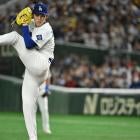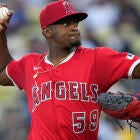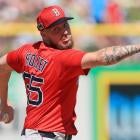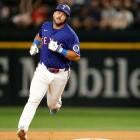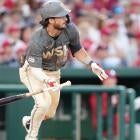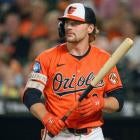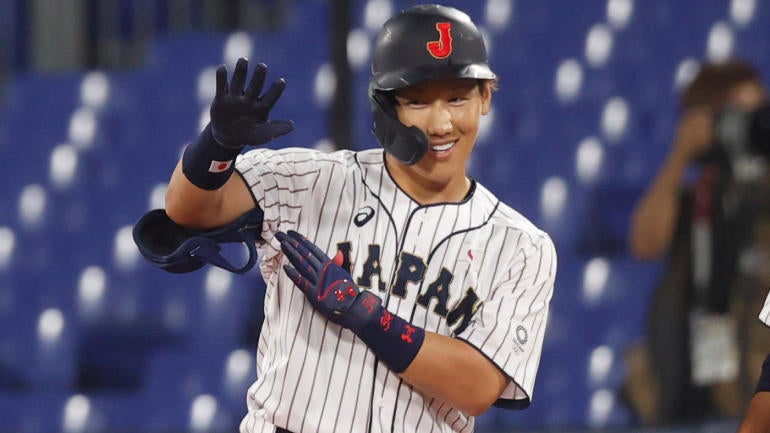
No one can claim the Red Sox are playing it safe this offseason, not after locking up Japanese star Masataka Yoshida with a five-year, $90 million deal. Factor in the posting fee owed to the Orix Buffaloes, and the team's total commitment is in excess of $100 million, which is a lot of money for a relative shot in the dark.
Let's be honest: most of the high-dollar signings out of Japan over the years haven't worked out as hoped. For every success story like Ichiro Suzuki and Yu Darvish, there have been multiple disappointments or outright failures. The biggest signing from last year, Seiya Suzuki, did make a positive contribution for the Cubs, but a .262/.336/433 slash line doesn't move the needle in Fantasy. Suffice it to say he's not a big-ticket item heading into 2023.
So should Yoshida be? At the risk of stating the obvious, I'll point out that he's his own player, and nothing anyone else did has any bearing on his ultimate fate. The reason for comparing him to past Japenese stars who've made the same transition is that the two leagues play differently. There is no reliable conversion metric, so precedent offers the best indicator for how the skills might translate. If there was a better indicator, then MLB teams would stop whiffing with these deals.
Yoshida's 2022 Stats (in Japan): .336 BA, 21 HR, 4 SB, 1.007 OPS, 82 BB, 42 K
It just so happens that the stat with the least carryover from Japan to the U.S. is the one Fantasy Baseballers care about most: home runs. Virtually no player to come over from Japan has come close to the totals he was putting up there -- and for good reason. The ball is smaller. The venues are smaller. It's just way easier to hit a home run in Japan, which puts the 21 Yoshida hit last year (or the career-high 29 he hit in 2019) into perspective.
That's not to say he'll be a zero for power. There's an uppercut to his swing that will likely yield ample fly balls. Still, at 5-feet-8, the power will likely only be to his pull side, which makes for a unique challenge at Fenway Park. The easiest home run in baseball is one wrapped around Pesky's Pole, but most of Fenway's right field fence is deeper than at other venues.
With the possibility of Masataka Yoshida heading to the MLB for next season check out these highlights of the "Macho Man" and what he could bring to a Major League Baseball club next season pic.twitter.com/3e6WWb26ZP
— FTF Sports (@ForTheFansHQ) November 8, 2022
The good news is that power isn't really Yoshida's game. Where he excels is in making contact and getting on base. He has consistently walked more than he's struck out in his career -- much more, in fact. His 2-to-1 ratio last year (82 walks vs. 42 strikeouts) was actually worse than in the previous two, marking a three-year span in which he reached base at a .443 clip. His batting average during that same span was .341, which is a testament to his contact skills. The only major-leaguer with a better strikeout rate than Yoshida in 2022 was Luis Arraez, who won the AL batting title.
According to Sports Info Solutions, Yoshida's high batting averages have come even with extensive infield shifting against him, a strategy that will be severely curtailed in the majors next year. It all adds up to him potentially being a real standout in the category even if the power leaves something to be desired. There isn't much speed either, so Arraez actually makes for an apt comparison. Or maybe the uppercut swing trades off some of that batting average for power and Yoshida turns out more like his new teammate, Alex Verdugo. His best-case outcome is probably a lot like Alejandro Kirk's, though at a much different position, obviously.
If Yoshida is delivering those numbers out of the leadoff spot for the Red Sox, then he'll certainly be an impactful Fantasy player, and given the shortage of those in the outfield right now, he makes for a welcome addition to the player pool. I think the key is not to overestimate his upside based on the numbers he put up in Japan. My initial inclination is to place him about 35th in the outfield, right around Mitch Haniger and Nick Castellanos. It's a better-safe-than-sorry sort of ranking, but it comes just before the precipitous drop at the position. He may deserve to go a few spots higher in points leagues.
![[object Object] Logo](https://sportshub.cbsistatic.com/i/2020/04/22/e9ceb731-8b3f-4c60-98fe-090ab66a2997/screen-shot-2020-04-22-at-11-04-56-am.png)








